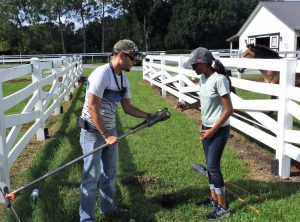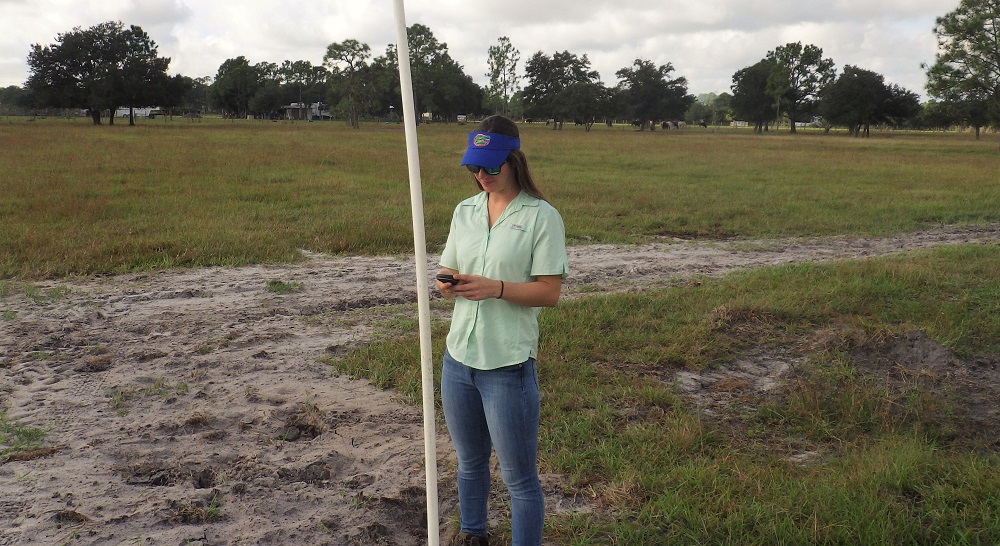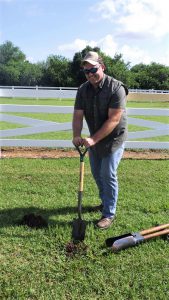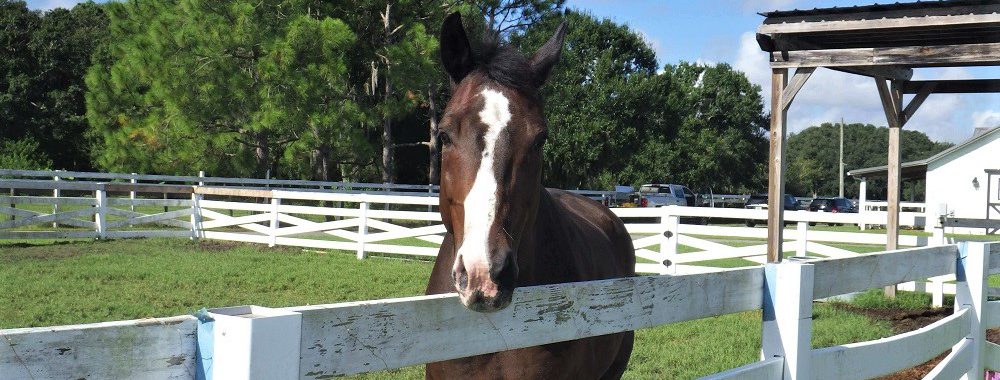
Do you farm or ranch and want to make improvements to the land that you own or lease? The 2018 Farm Bill, enacted December 20, 2018, includes many programs to support conservation efforts for farmers and ranchers across the country – these voluntary programs address natural resource concerns, such as water, air, and soil quality, while improving agricultural operations. Some of the most popular programs are: the Environmental Quality Incentives Program (EQIP), the Conservation Stewardship Program (CSP), and Conservation Technical Assistance (CTA).
EQIP
The Environmental Quality Incentives Program – EQIP for short (pronounced “ē-quip”) – provides agricultural producers with financial and technical assistance to address environmental concerns. These concerns include air and water quality, ground and surface water conservation, improving soil health, reducing erosion, and creating or improving wildlife habitat.

Field office personnel, including Natural Resources Conservation Service (NRCS) and Manatee County Extension employees, will work one-on-one with farmers and ranchers to create a conservation plan that fits the need of each individual. These conservation plans include specific improvements that meet NRCS standards to address natural resource concerns, also known as conservation practices, all while improving agricultural operations.
Through this voluntary program, NRCS co-invests in these conservation practices with producers and helps make conservation work for them. Popular conservation practices include fence, livestock watering systems, and irrigation systems.
CSP
The Conservation Stewardship Program (CSP) provides plans tailored to agricultural producers’ lands to increase productivity while protecting the value of the land. This program aims to maintain and improve existing conservation systems and, when needed, adopt/implement additional conservation activities to address priority resource concerns. Participants earn CSP payments for conservation performance – the better the performance, the higher the payment.

So, what will each producer really get out of this program? Whether a producer wants to improve grazing conditions, develop wildlife habitat, or increase irrigation efficiency, field office staff will custom design a CSP plan to help meet their goals. NRCS can introduce beneficial conservation practices, such as cover crops or a grazing plan, to help strengthen agricultural operations. Cover crops help to reduce erosion and increase soil health and organic matter content, and a grazing plan can improve the forage base. If producers are already taking steps to improve the condition of their land, chances are CSP will help find a new way to meet their conservation goals.
CTA

The Conservation Technical Assistance (CTA) program provides agricultural producers with the technology needed in order to achieve the benefits of a healthy and productive landscape. This program aims to reduce erosion, solve soil, water, and air quality problems, enhance or create wildlife habitat, and so much more!
With the help of field office personnel, farmers and ranchers can develop a plan specific to their property to conserve the present natural resources while improving their practices. This program also aids in the compliance with highly erodible land and wetland conservation compliance provisions. Although it does not provide financial assistance, this program may put producers on the path to being funded via other Farm Bill programs, like EQIP and CSP.
Contact
If you have any questions, or if you think one (or more) of these programs could help you improve your agricultural operation, feel free to contact your local NRCS office. If you are in the Manatee/Sarasota/Charlotte area, please access the Florida NRCS website or contact (941) 907-0011 to talk to a Manasota NRCS Service Center employee. Alternatively, you may email the District Conservationist for this area at Israel.Vega-Marrero@USDA.gov.
 0
0

